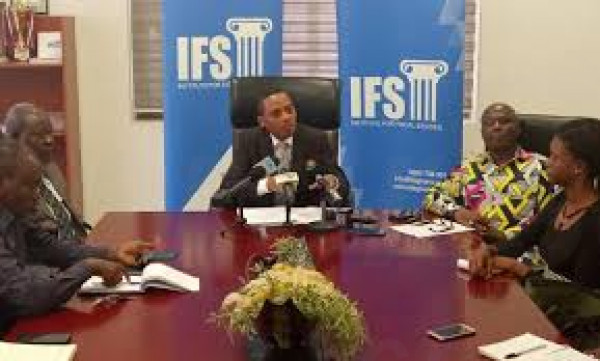The Institute of Fiscal Studies (IFS) has described the decline in Ghana's capital expenditure in recent times as very alarming.
Capital expenditure refers to funds that are used by a company for the purchase, improvement, or maintenance of long-term assets to improve the efficiency.
Mr Leslie Dwight Mensah, an Economist at the IFS, said Ghana's projected expenditure (including arrears clearance) in 2019 had been increased by GH¢1.2 billion to GH¢74.6 billion, representing an extra 0.3 per cent of gross domestic product (GDP) that would send the total to 21.6 per cent of GDP.
He said in view of the revenue forecast being maintained, this would lead to a rise in the deficit by GH¢1.2 billion to GH¢15.7 billion, raising the deficit ratio from 4.2 per cent to 4.5 per cent of GDP.
He said additional allocations have been made to goods and services (GH¢605.0 million), grants to other government units (GH¢235.8 million), and interest payments (GH¢952.7 million).
"Because capital expenditure is critically needed to ensure increase in productivity in all sectors for accelerated and sustained growth and development of the Ghanaian economy, in the past, IFS has been very concerned about declines in central government capital expenditure as a ratio of GDP," Mr Mensah stated in his presentation of the "IFS' Assessment of 2019 Mid-Year Fiscal Policy Review" in Accra.
The meeting was to assess the notable developments in the mid-year review and make further recommendations to safeguard fiscal stability, which had come under threat from both revenue and expenditure management difficulties.
"This is because the declines in the ratio resulted from slower growths in the nominal values of capital expenditure relative to growths in the nominal value of GDP," he stated.
"In recent years, however, the behaviour of capital expenditure is simply alarming. This is because the nominal values of capital expenditure itself are declining at a fast pace. Standing at GH¢7.7 billion in 2016, the nominal value of capital expenditure declined to GH¢6.3 billion in 2017, and further to only GH¢4.6 billion in 2018."
He said it was a relief when the 2019 Budget Statement projected capital expenditure at GH¢8.5 billion; adding that, "however, in the mid-year budget, government has slashed this amount by one-tenth (GH¢819.9 million) to GH¢7.7 billion, about its 2016 level".
He said the fall in central government capital expenditure as a proportion of GDP had, therefore, become worse in recent years; capital expenditure fell from 4.0 per cent of GDP in 2015 to a low of 1.6 per cent of GDP in 2018.
"It is projected to be 2.2 per cent of GDP in 2019, which is only slightly more than half of the 2015 ratio," he said.
"Over the same period, expenditure on goods and services grew from 0.8 per cent of GDP to a projected 2.0 per cent of GDP in 2019, which is nearly as much as what is going into capital investment."
Mr Mensah explained that whereas fiscal consolidation had contributed to the reduction in capital investment, another important factor was the growth of goods and services spending, which had been driven in recent times by the many new policy initiatives the government is pursuing.
It would be recalled that on Monday July 29, Mr Ken Ofori-Atta, the Finance Minister presented the mid-year review of the 2019 budget statement and fiscal policy to Parliament.
Notable fiscal policy changes that were announced included energy and communication tax hikes and a request to spend more money relative to the initial 2019 budget appropriation.


